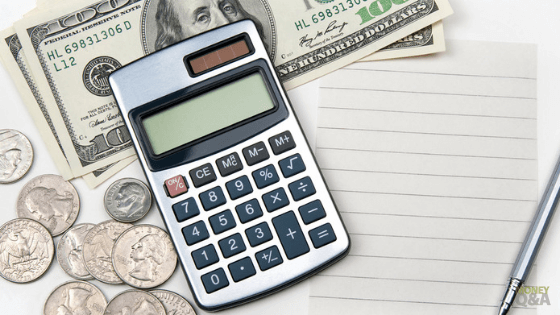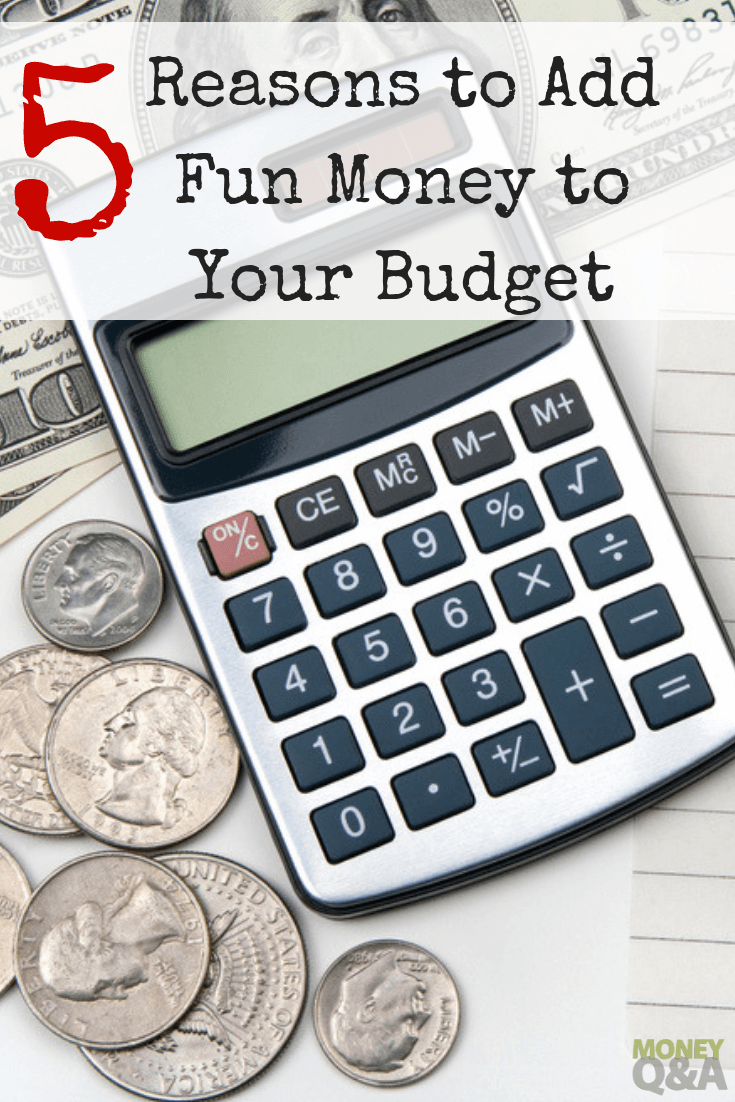The following is a guest post from Choncé, a budgeting guru, who chronicles her journey with balancing motherhood, a home-based business, and finances on her blog, My Debt Epiphany. If you’d like to submit a guest post to Money Q&A, be sure to check out our guest posting guidelines.
In 2015, I made a horrible mistake. I chose to cut fun and entertainment money out of my budget. I was feeling overwhelmed with my debt. I owed $30,000 between my student loans and my car loan.
My future husband (boyfriend at the time) owed about $20,000 which included student loan debt, credit card balances and a small car loan.
I had just started budgeting and became obsessed with living frugally. People I followed online were able to spend absolutely nothing on dining out or entertainment each month. This helped them be able to contribute more toward debt and savings so I thought I could try it too.
5 Reasons to Add Fun Money to Your Budget
The experience ended horribly and I learned the true importance of adding fun money to your budget regardless of where you are in your financial journey. Here’s why you need to prioritize ‘fun money’.
1. Fun Money Gives You the Freedom to Resist Impulse Spending
Not giving yourself fun money each month is similar to going on a super strict diet. Eventually, you’ll cave. When you do, you’ll take it to the extreme and binge on pizza and cake or whatever it is that you like to buy.
You’ll feel horrible after your diet or budget is ruined, but it will feel great at the moment. You can repeat this cycle over and over if you continue to be so strict with depriving yourself.
The thing is, when you make too many sacrifices, you often start to rebel and want the things you told yourself you couldn’t have.
Why not give yourself a little fun money so you can spend responsibly and use the rest of your money to meet your financial goals.
2. You Can Budget For It
The best way to have fun money is to work it into your budget. I no longer feel guilty for spending on wants or entertainment because we plan for the purchases and still put a ton of extra money toward debt.
My husband and I started budgeting $110 per month collectively for dining out and entertainment. Sure, that added up to over $1,200 per year, but in the grand scheme of things, it isn’t much for the value we get out of fun money.
We’ve been able to go camping, attend family events, screen new movies, celebrate birthdays at restaurants,
This has been a great way to motivate us to continue to pay off debt. In my mind, once we pay off our debt, we can slowly add in more fun money.
3. Frugality Has Different Levels
This is a lesson I wish I would have learned from the start. It’s not okay to compare your financial journey and situation to someone else’s. What works for them might not work for you.
My $110 monthly dining out and entertainment budget may not work for your goals or lifestyle and that’s okay.
While other people were able to go months or even years without actually paying for things and experiences that may have brought them joy and relief, I couldn’t do that.
I would have been miserable during my debt repayment journey and to me, the sacrifice wasn’t worth my mental health.
We were still able to aggressively pay off our debt during this time because I realized there are different levels to frugality. I’m still frugal but in my own way.
For example, we eat at home most of the time and don’t buy lunches or coffee much during the day. We also shop used for furniture and clothing. My son goes to private school but we volunteer at the school 30 hours per semester so we earn a sizeable discount on tuition.
These are just some of the ways we’be been able to find our own level of frugality and still meet our financial goals.
4. Life is Short
I don’t want to be like all of those ‘you only live once’ people, but it’s true. You have to live in the present for some of your life and seize the day.
This doesn’t mean you have to splurge every chance you get, but you do need to consider your happiness and comfort right now.
I always find it challenging to balance living a good life now and preparing for the future when it comes to managing your money. Only you can decide what opportunities you want today and what you want to sacrifice while you work toward your goals.
Adding a little fun money to your budget can be motivating during a longer debt repayment journey, help you avoid unnecessary fights with your spouse, and still allow you to meet your goals when done right.
Despite having fun money, we still paid off most of our debt in a short amount of time anyway.
In 2015, I paid off my $10,000 car loan. In 2016, I married my husband and we paid for the wedding in cash. I still made extra payments on my student loans whenever I could. In 2017, we paid off $14,000+ of debt together and got rid of my student loans and my husband’s car loan.
This year, we slowed down a bit and paid off some medical bills. We plan to get rid of my husband’s student loans and be debt free outside of our mortgage by the end of 2019.
It’s been an amazing journey so far filled with challenges and obstacles but having fun money has brought us relief during the tough times.
5. Having Money to Spend Shifts Your Mindset to Abundance
Finally, budgeting for fun money will allow your mindset to shift from scarcity to abundance. When you’re in debt, you often have a scarcity mindset since you know you are in the negative and probably don’t have enough money to pay off all your balances at once.
Believing you don’t have enough will shift your mind to want to hold on to everything because you’re afraid you’ll never have it again.
The thing is, money comes and goes. Your income can be abundant. When you lower expenses, it feels great but you can only cut so much. Once you reach your limit, you can focus on making more money and adopting an abundant mindset.
That’s one of the best ways to accelerate your debt repayment journey. Back in 2015, I was earning about $28,000 per year. Since then I’ve been able to double my income thanks to side hustles like blogging and freelance writing.
This is because I told myself I didn’t have to limit my earnings or penny pinch to the point where it made me uncomfortable. You can do this too. Cut expenses up to your personal limit, then focus on making more money and including a ‘fun money’ budget category.
If you stick to your values with fun money, odds are you won’t regret it.
Choncé is a freelance writer who’s obsessed with frugality and passionate about helping others increase their savings rate, eliminate debt, and work toward financial stability. She’s a budgeting guru who chronicles her journey with balancing motherhood, a home-based business, and finances on her blog, My Debt Epiphany.


